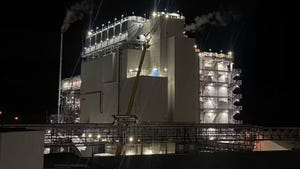TI Automotive gets massive order from VW for blowmolded plastic fuel tanks, lines
The Tier One automotive supplier has been tasked by the world's second-largest carmaker to supply it with six million plastic filler pipes as well as up to 3 million fuel tank systems. TI Automotive's award-winning "ship-in-a-bottle" fuel tank design will be used for the blowmolded tanks.
October 6, 2010
The VW order follows one announced in July 2010, which the automotive parts processor had identified as its largest order ever; that one, also for fuel tanks, fuel filler pipes, and fluid carrying lines, was from Mercedes. Now, Volkswagen Group has ordered the fuel-storage and transportation systems for five different Volkswagen Group vehicles, with deliveries to start in 2011.
TI Automotive (Auburn Hills, MI) says the fuel tank systems will be produced at its facilities in Ettlingen and Rastatt, Germany, and Pamplona, Spain, and installed on five different Audi, Volkswagen, Seat, and Skoda vehicles. The fuel filler pipes will be processed at a new TI Automotive facility in the Czech Republic and shipped to the different final assembly locations.
TI Automotive currently supplies fuel tank systems to the Volkswagen Passat in Asia, and the Audi Q5 and Volkswagen Caddy in Europe. In 2011 it will begin production on two new programs: the Volkswagen sedan in North America and the Audi Q3 in Spain.
The plastic fuel tank technology used for the cars will be the company's Partial Zero Emissions Vehicle (PZEV) plastic fuel tanks, also known as the ship-in-a-bottle (SIB) design because all of the tanks' internal components are incorporated into the tank prior to blowmolding, so there is no need for post-processing welding, and, as such, fuel-vapor permeation paths are reduced along with evaporative emissions. BMW was the first to use the plastic PZEV tank in volume production for its 3-Series sedans.
The SIB system reduces emissions by inserting various components—such as the fuel module, level senders, rollover valves, and vent lines—into the tank during blowmolding. Emissions from an SIB tank are typically 30 mg/day or less, depending on tank configuration; standard blowmolded tanks emit up to 240 mg/day. —[email protected]
About the Author(s)
You May Also Like


